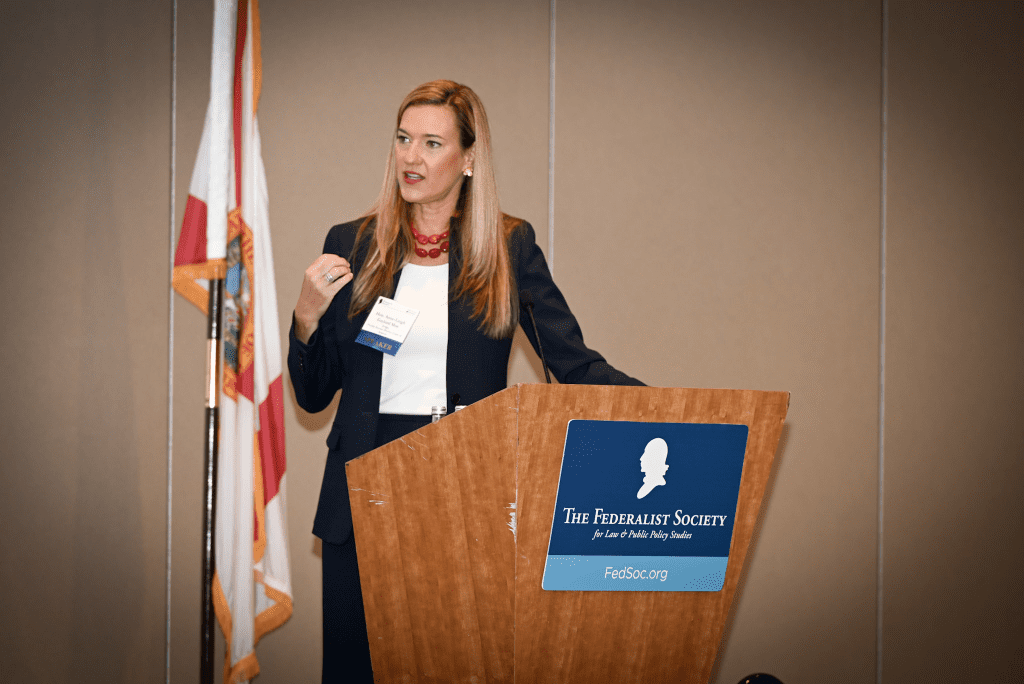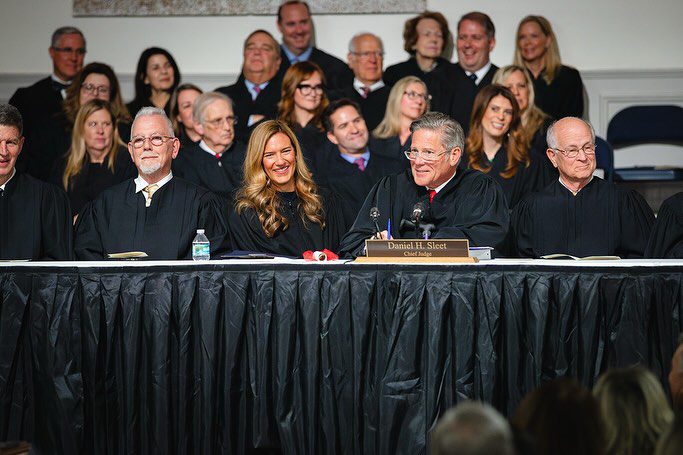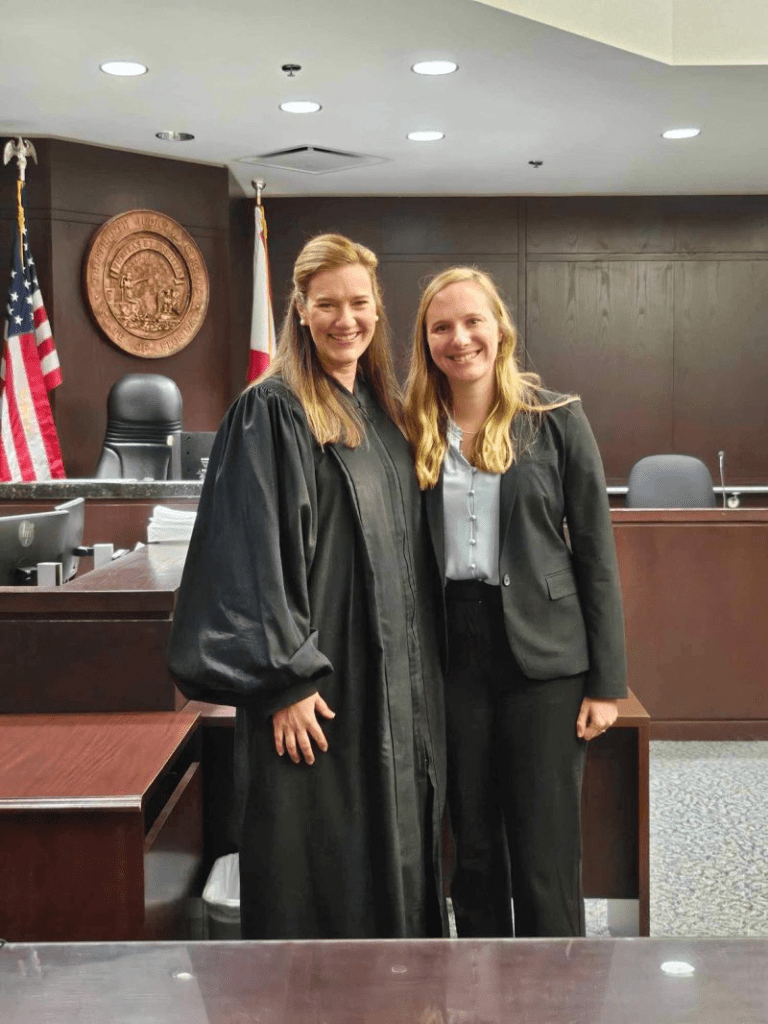Trump’s Judicial Legacy Grows Stronger as Senate Advances Anne-Leigh Moe Nomination Despite Shutdown and Democrat Defections
The United States Senate has advanced the confirmation of Trump nominee Anne-Leigh Gaylord Moe to serve as a U.S. District Judge for the Middle District of Florida, marking yet another milestone in the former president’s ongoing transformation of the federal judiciary. The 53-46 cloture vote on October 21, 2025, included support from thirteen Democrats who crossed party lines to back Moe’s nomination, defying weeks of partisan gridlock and a government shutdown that has consumed Washington’s focus. The move signals growing bipartisan acknowledgment of Moe’s qualifications and reflects the enduring influence of Donald Trump’s judicial philosophy—one rooted in constitutional originalism and restraint.

Moe, a respected Florida appellate court judge and former prosecutor, was first nominated by President Trump in May 2025. Her reputation as a fair but firm jurist who prioritizes textual interpretation over ideological activism has earned her praise from conservatives and moderates alike. Her judicial record shows consistent emphasis on the rule of law, limited government authority, and adherence to the Constitution as written—principles that have become hallmarks of Trump’s judicial appointments since his first term.

The confirmation momentum comes at a critical time. With a divided Congress and lingering tensions from the shutdown, Trump’s second-term strategy has leaned heavily on the judiciary to cement long-term policy influence. Over 200 judges were confirmed during his first term, and Moe’s nomination underscores a deliberate continuation of that mission. The administration has framed her appointment as part of a broader effort to restore balance in courts that conservatives say have been dominated for decades by activist rulings.

Public reaction to Moe’s advancement has been swift and enthusiastic across conservative circles. Supporters celebrated the vote as a sign that activist judges—often accused of legislating from the bench—are gradually losing power. On social media platform X, posts praising the decision quickly went viral, with many users commending the Senate for “finally restoring integrity to the courts.” The response mirrors a growing national sentiment among conservatives who see the judiciary as the most critical front in defending constitutional governance against what they perceive as overreach by unelected officials.
Democratic reaction, however, was more muted. While some party members criticized the vote as politically motivated, others quietly acknowledged Moe’s impeccable legal credentials and her reputation for fairness. The fact that more than a dozen Democrats supported cloture suggests that even in a sharply divided Senate, there remains recognition of professional merit beyond partisan lines.

Moe’s confirmation is expected to proceed swiftly in the coming days, with the final vote likely to mirror the same bipartisan margins. For Trump and his supporters, the development represents not just another seat filled, but another statement of enduring political vision. His judicial appointments, viewed collectively, have already reshaped federal courts from the appellate level down, influencing decisions on issues ranging from religious liberty to immigration policy.

If confirmed, Anne-Leigh Moe will join a growing class of judges committed to upholding constitutional originalism—a movement that has quietly but profoundly shifted America’s legal landscape over the past decade. Her rise also sends a clear message: despite opposition narratives, Trump’s second-term agenda continues to advance with precision and purpose, prioritizing law, order, and judicial integrity over ideology.
For many conservatives, this isn’t merely about one judge. It’s about restoring faith in institutions that, for years, they’ve believed were politically weaponized. As one Senate aide close to the nomination process put it, “Anne-Leigh Moe represents everything this new era of judicial leadership stands for—qualified, grounded, and unapologetically loyal to the Constitution.”
With her likely confirmation just ahead, the Trump administration is poised to celebrate yet another major victory in its mission to build a judiciary defined not by politics, but by principle—and one that may shape the nation’s legal course for decades to come.



